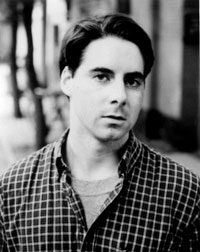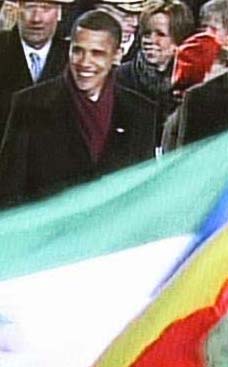
"After completing my Peace Corps service, I left China with amoebic dysentery, a mysterious problem with my lefteye, a positive test for tuberculosis, and an outline for a nonfiction book that I hoped to write. The Peace Corps gave me vouchers for the medical problems. One by one, I took the vouchers to doctors around Columbia, Missouri, where I had returned to live with my parents for a few months. I envisioned this as a kind of rehab, both medical and professional: I’d get healthy, take a shot at writing a book, and hopefully find a job that paid more than 1,000 kuai a month. I got pills for the amoeba; they never figured out the eye problem. Every month I went to the Boone County Department of Public Health, where they distributed the tuberculosis medicine as part of a government program to stop infectious diseases. Some local homeless people had also picked up TB, and I learned that the government paid them five dollars a day as incentive to take the pills. I tried to sign up for this program - it would have represented a 20% raise over my monthly stipend in Fuling - but the woman at the window just laughed at me."
Peter Hessler writes: Post-Peace Corps Life
Post-Peace Corps Life by Peter Hessler
After completing my Peace Corps service, I left China with amoebic dysentery, a mysterious problem with my lefteye, a positive test for tuberculosis, and an outline for a nonfiction book that I hoped to write. The Peace Corps gave me vouchers for the medical problems. One by one, I took the vouchers to doctors around Columbia, Missouri, where I had returned to live with my parents for a few months. I envisioned this as a kind of rehab, both medical and professional: I’d get healthy, take a shot at writing a book, and hopefully find a job that paid more than 1,000 kuai a month. I got pills for the amoeba; they never figured out the eye problem. Every month I went to the Boone County Department of Public Health, where they distributed the tuberculosis medicine as part of a government program to stop infectious diseases. Some local homeless people had also picked up TB, and I learned that the government paid them five dollars a day as incentive to take the pills. I tried to sign up for this program - it would have represented a 20% raise over my monthly stipend in Fuling - but the woman at the window just laughed at me.
Usually I began writing at dawn and sometimes I was still going late in the evening. In Fuling I had kept a detailed diary, but it wasn’t until I returned to the States that I had the time and the perspective necessary to write about my experiences. Three or four times a week, I walked over to the local elementary school and tutored two boys who had recently arrived from China without a word of English. One of them was a fourth grader called Gang Jian, who had given himself the name Jack after watching Titanic. Jack Gang - what a wonderful name for an American! But the boy was still Chinese, and he had a wary, haunted look; nothing in Wuhan had prepared him for Ulysses S. Grant Elementary School. We were both refugees, lost somewhere between China and the United States, and those tutorial sessions were the highlight of my week.
In the meantime I sent out résumés. I hoped to work for a U.S. newspaper or magazine, and the goal was to eventually return to China as a correspondent. The rejections began to appear around the same time the Peace Corps medical vouchers started bouncing. There was some bureaucratic problem, and everything I’d picked up in Fuling came back in the form of bills: the TB tests, the eye exams, the amoeba eradication. All but one of the newspapers sent a form rejection. An editor from the Los Angeles Times wrote a nice note explaining that he liked my writing, but my experiences were too non-traditional to qualify for a job. He suggested that I start at a small-city newspaper, work my way to a bigger publication, and then establish myself as somebody capable of being sent abroad as a correspondent. If I went that route, it would take a decade to return to China.
Around that time I finished a draft of River Town and hated the book. Later I realized that my reaction was part of the transition, that post-Peace Corps struggle that people warn you about. It seemed impossible to reconcile American life with the skills I had gained in Fuling, and I felt like I was leaving behind everything I had learned in the Peace Corps. At a particularly low point, I sent a desperate résumé to Amazon.com, offering to write book summaries for their website. (They never responded, thank God.) Finally I did the sensible thing, which was to mail my manuscript to a bunch of names I found on a list of literary agents. And then things began to turn: in the span of a week, I got phone calls from two literary agents, as well as one collection agency. (Those Peace Corps vouchers were still bouncing around.)
During the month of Spring Festival I was offered a book contract. It wasn’t a lot of money, but it paid off my college loans, and it convinced me that there was a future in China. But now I knew that nobody was going to send me back. Through a friend of a friend, I learned that the Wall Street Journal was looking for a part-time assistant in their Beijing bureau, at a wage of $500 per month, so I signed up. I bought a one-way ticket to China, packed two bags, and headed off to become a freelance writer. It felt like the Peace Corps all over again, but this time I was alone. Before I left, I said goodbye to Jack Gang and his parents. In the span of six months the kid had already become conversational in English, and that haunted look was gone from his eyes.
In 1996, our group of China 3 arrived with fourteen prospective volunteers, and since then there has always been at least one of us living in China. All told, seven members have spent some time living in China, post-Peace Corps. The same is true for other groups, and China has become the rare Peace Corps country in which there’s a future after service. If anything, the range of jobs is so broad that it’s hard to give advice. Some people have attended graduate school in the U.S. before returning; others have signed up for a year of China-based language study; some return independently to find jobs. RPCVs have worked in China as lawyers, journalists, teachers, public relations managers, business directors, guidebook authors.
There’s no single job track, but certain things are useful to think about. First - and somewhat perversely - it’s best not to think too far ahead. With the Internet, it’s easy for a first-year volunteer to start researching options for jobs and graduate schools, but there’s a point at which this becomes a distraction. If you’re interested in a career in China, the best way to prepare is by focusing on your main tasks as a volunteer: teaching, learning Chinese, functioning in your community. The longer I lived in Beijing, the more I appreciated the foundation I gained in the Peace Corps. It’s rare for a foreigner to spend two years in a small city in the interior, and that perspective simply isn’t possible in places like Beijing and Shanghai. Make the most of this opportunity - you probably won’t have it again, since most China careers inevitably take you to the bigger cities.
During your second year, when it’s time to start thinking about future options, you shouldn’t hesitate to contact RPCV’s. There’s a RPCV listserve, and the odds are that somebody on that e-mail list has experience and advice that are relevant to your interests. Finally, you may need to make a big step on your own. For certain careers, it’s easiest to find a position if you’re already in Beijing or Shanghai; this was my experience with journalism. In the U.S. there simply wasn’t a clear track for a writer hoping to go to China, whereas by living in Beijing I was already there. The first six months were difficult; I knew few people and had trouble selling stories. But by year’s end I was earning a stable living, and after two years I was doing the kind of writing I had always wanted to do. Other volunteers have had similar experiences in business, showing up in Beijing or Shanghai and finding jobs.
After the institutional stability of the Peace Corps, it can be hard to take this step. Sometimes the ideal compromise is to enroll in a language course. You can improve your Chinese, gain a social foothold in a city like Beijing, and maybe start some part-time work that will eventually lead to a job. If I were to do it over again, this is probably the path I’d take, but in 1998 I didn’t know about the options and the Peace Corps network was thin. Recently Michael Meyer wrote about his experiences on the IUP, and there are other fellowship opportunities and cheap language courses. The listserve can help you sound out possibilities.
Even if you decide to stay in the States, I’d encourage you to find some way to remain connected with China. These transitions are challenging - everybody in my group struggled with those early months after the Peace Corps. I may have been taking a big step as a writer, working on my first book, but at the time it didn’t seem that way. I felt like my health was bad, my job prospects were limited, and my China experience was going to waste. Tutoring at the local school allowed me to make some bridge between Fuling and Columbia, Missouri.
In the end, I returned to China and stayed for a decade. Jack Gang’s family eventually moved to West Virginia, and we lost touch. This spring I heard from him for the first time in years. He was about to graduate from high school in Charleston, where he’d been the only person of Chinese descent in his class. His English had turned out fine - he’d scored nearly perfect on the SAT. Princeton had offered him a scholarship and he took it, just another kid from the provinces making his way in the world.













